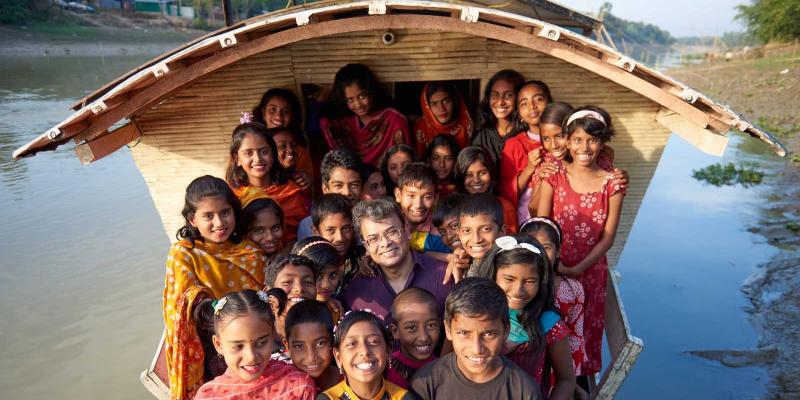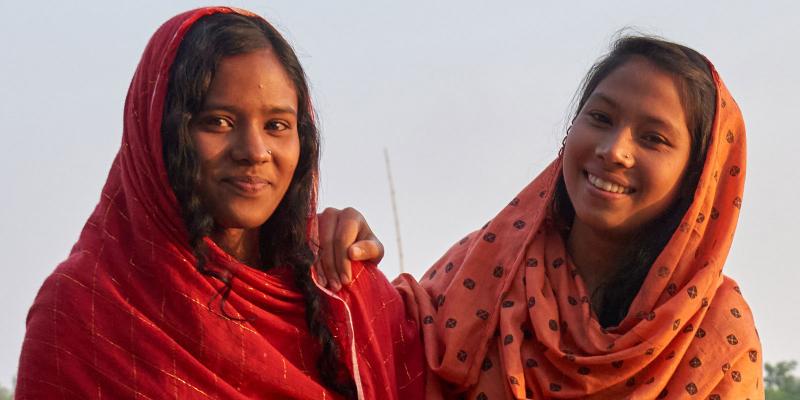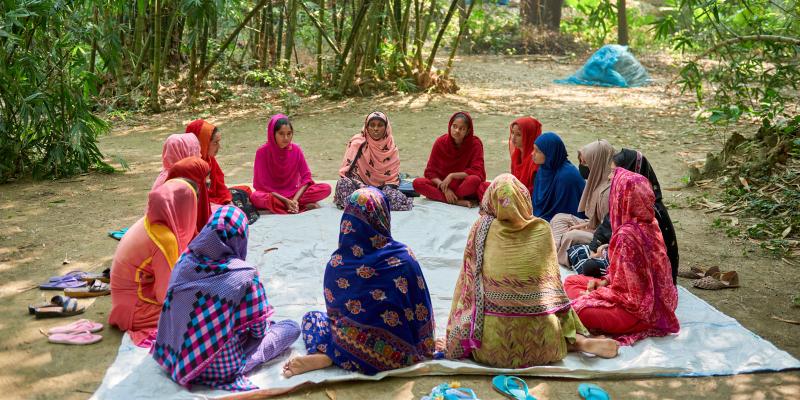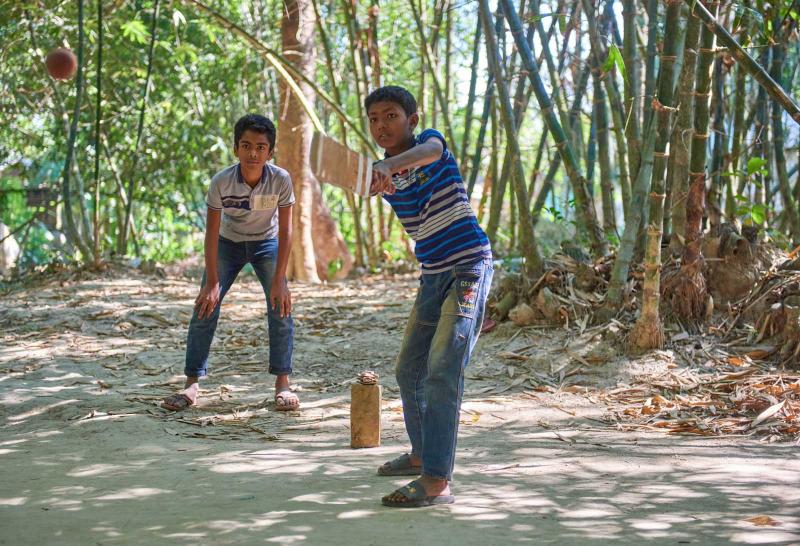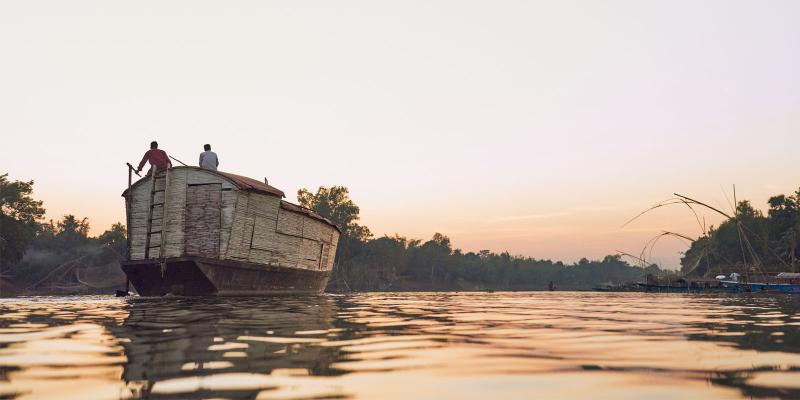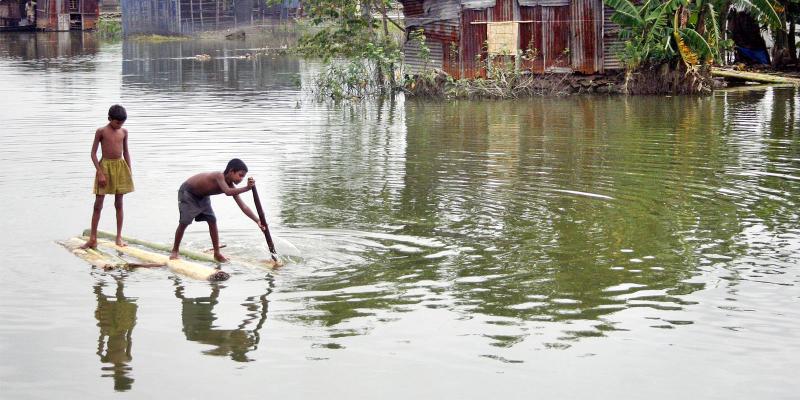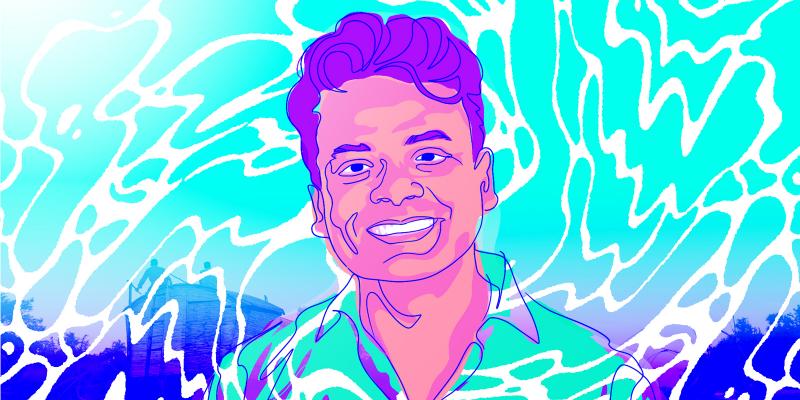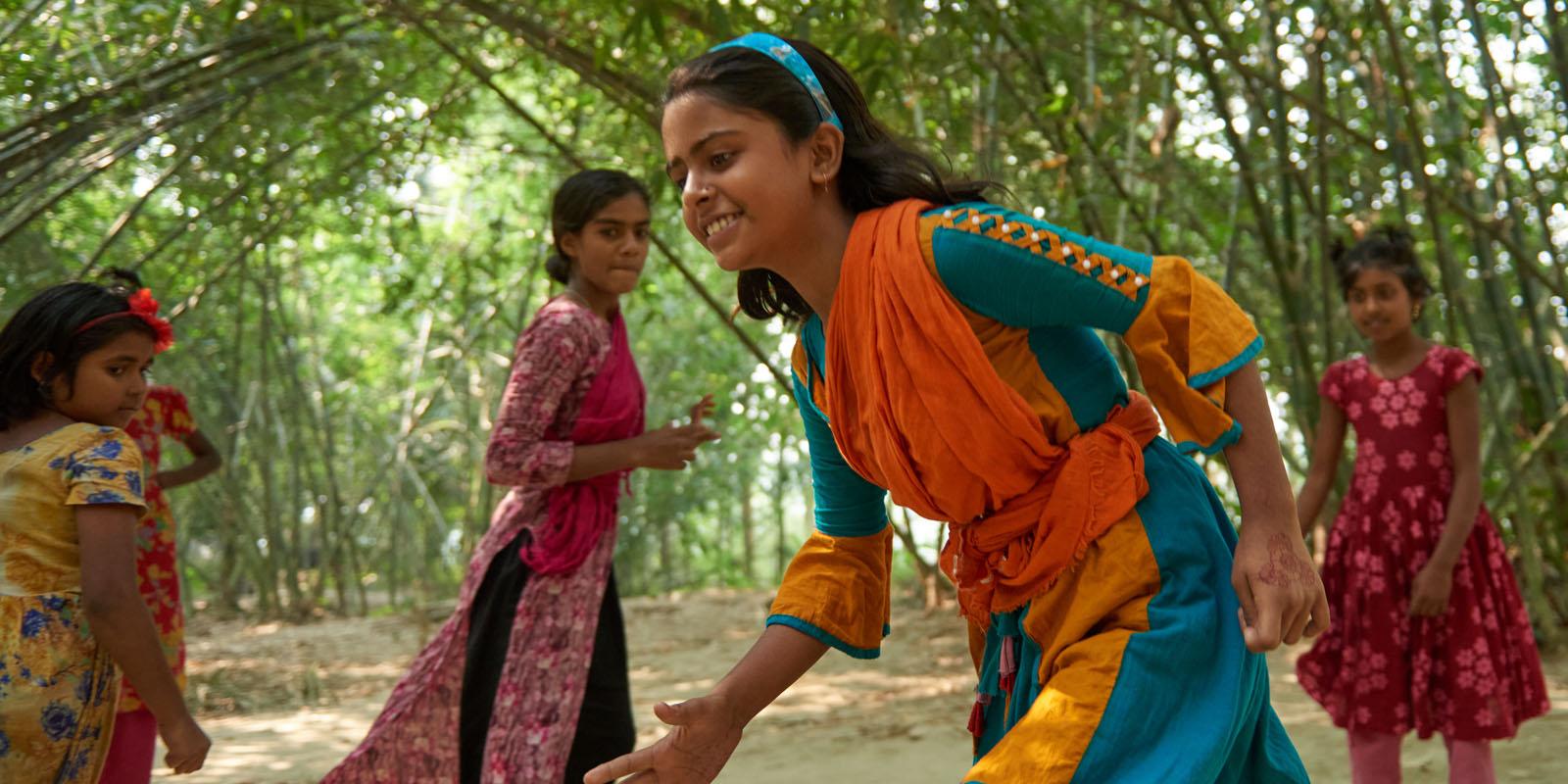
“My life would have turned out very differently if it hadn’t been for Rezwan’s boat school. I would have been married off and forced to quit school to look after the home. My future would have been ruined,” says Rakhiya, 11, who is in fifth grade and dreams of becoming a doctor in the village.
Nearly one in five girls in Bangladesh are forced into child marriage before the age of 15, many due to poverty that is being made worse by climate change. Rakhiya was almost one of them …
“It happened last year. I’d just got off the school boat and walked up from the river to our house. Just as I was going through the door I heard mum and dad talking about me. I stopped to listen, trying to be as quiet as possible. At first I thought I was hearing things. Could it be true? They were talking about a wedding. My wedding? Yes, they said my wedding. My heart started beating fast. Everything was spinning. I just didn’t get it. My parents were sitting there, planning to marry me off...
“At first I didn’t know what to do, but eventually I decided to go in. They stopped talking the minute I went through the door. I pretended as though I hadn’t heard a thing, and they pretended that everything was normal. I didn’t show how I felt, but I was so disappointed in mum and dad. And angry.”
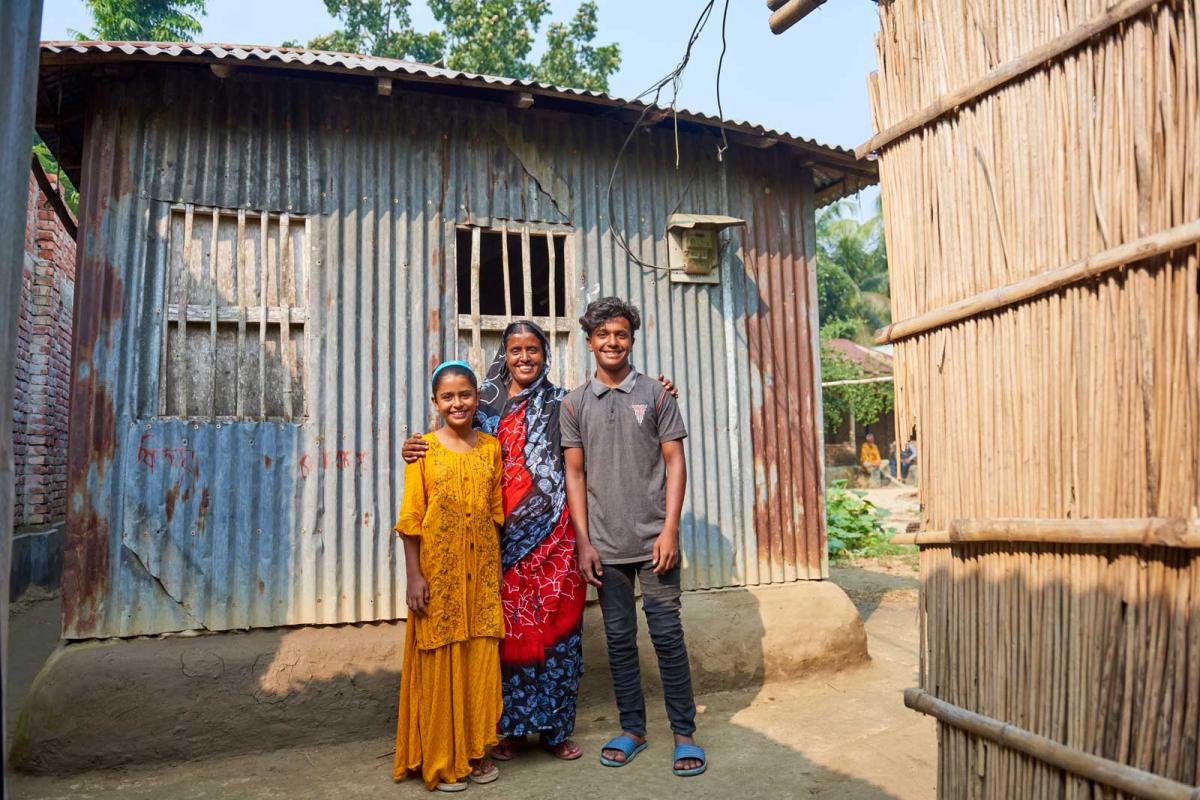
Teacher saved me
“At boat school, we’ve learned that child marriage is banned. That it’s against our rights. My teacher often talks about every child’s right to go to school, both girls and boys. But that could be all over for me now. I didn’t say anything to mum and dad that evening, but the next day I went straight to my teacher as soon as I got to school and told her. She was very worried and came home with me after school along with some people from the boat school’s Young Women’s Rights Association that she’d asked to come too. They explained to mum and dad that child marriage is wrong and illegal, and asked them not to marry me off. They said I had to finish school, play and be a child, not get married.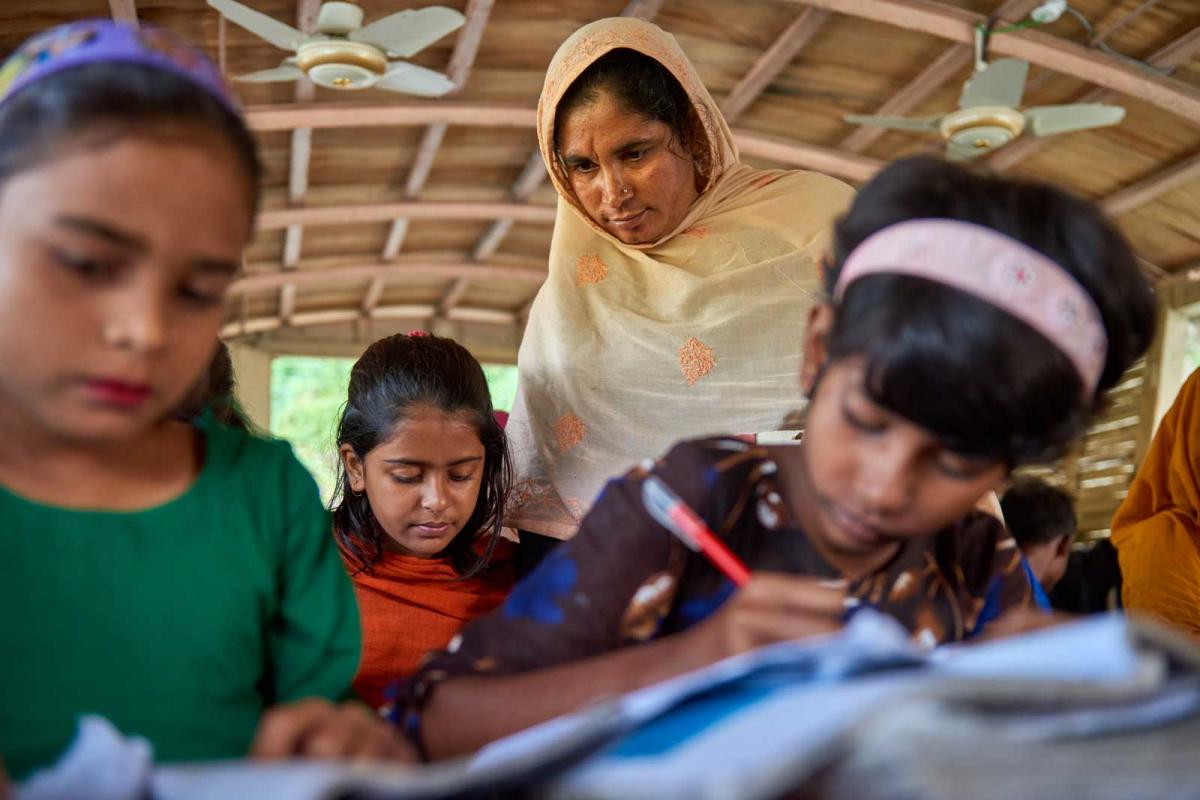
“I was worried and nervous, but the meeting actually ended with my parents promising not to marry me off. It’s hard to explain the relief I felt. But I still found it difficult to understand it all. Everything happened so quickly. I just didn’t get why mum and dad had been prepared to do that to me.”
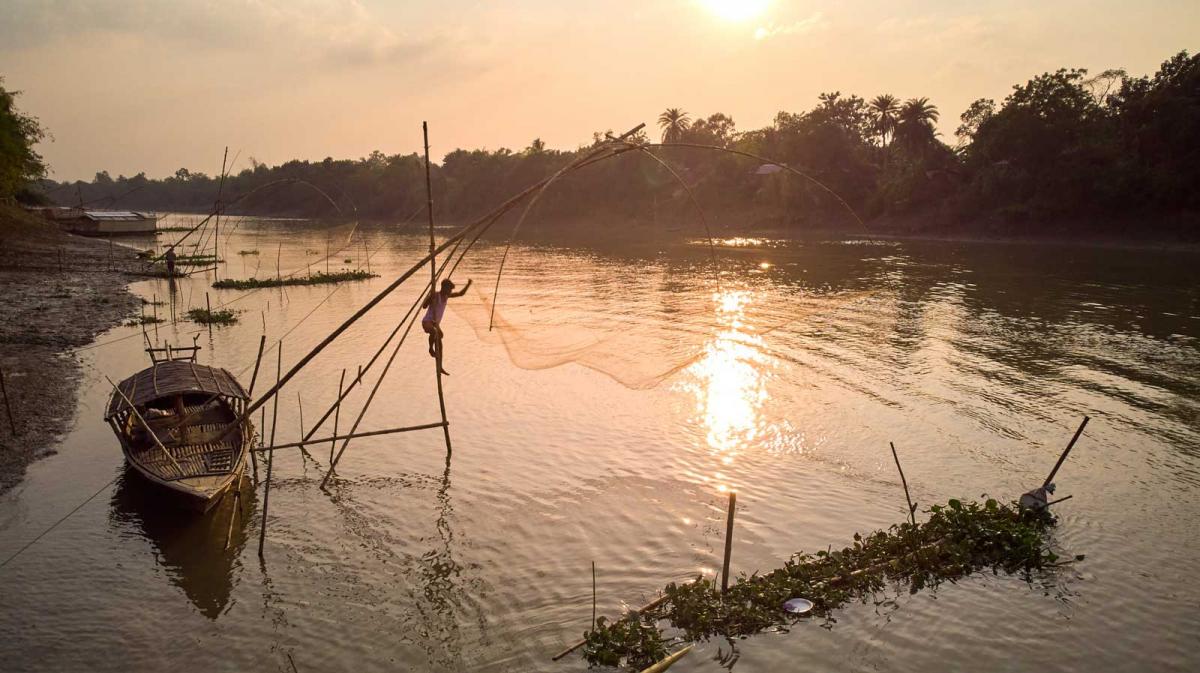
River took everything
“A few years ago, we lived near the river in a little house with walls made of reeds and bamboo. It was the monsoon, so the rain was pouring down and the water in the river was constantly rising and getting closer to the house. It was late one evening, but no-one in the family dared go to sleep.“First, a little water came in under the reed walls and at the door, but suddenly the water rushed in through every crack in the house. Finally it came right through the walls. My brothers and I held on to mum and dad as hard as we could, while the water got deeper and deeper. Before long, mum had to lift me as high as she could, because the water had got so deep in the house.
“When we made it out through the door it was like stepping right into the river. We screamed when we hit the water, and thought we were going to die. But somehow we managed to get to land. From there we watched as the walls and roof of our house were ripped off and dragged down into the river. The entire house disappeared.”
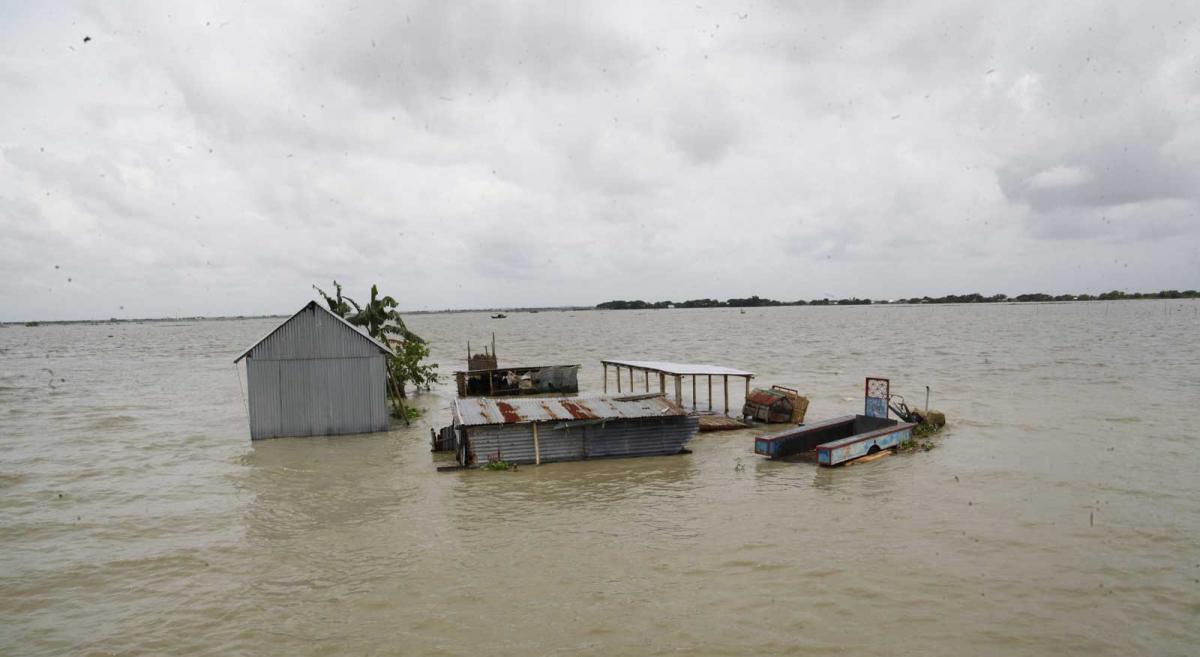
No land of our own
“We spent the whole of that night outside. The rain carried on pouring down, and there was water everywhere. I don’t remember much after that. I don’t know why, but mum has told me that I just cried and screamed. One moment I was in mum’s lap, and the next in dad’s. Sometimes I fell asleep from exhaustion, but then I woke again and screamed out loud. I had nightmares for ages, and would wake in the middle of the night crying and calling for mum and dad.We stayed with relatives until dad had built the house we live in now. But it was really hard after the flood. We have no land and we lost what little we had when the old house disappeared. The neighbours’ fields and plantations where mum used to work were also destroyed. So she had no way to work and earn money.
“Mum has explained that they were thinking of marrying me off so they’d have one less person in the family that needed food and other things that cost money. They felt they had no choice, because everyone was always hungry. She said it was an idea that was very painful. And that it was a mistake. Now I know she’s happy when I take the school boat every morning, and in some way I’ve forgiven my parents.”
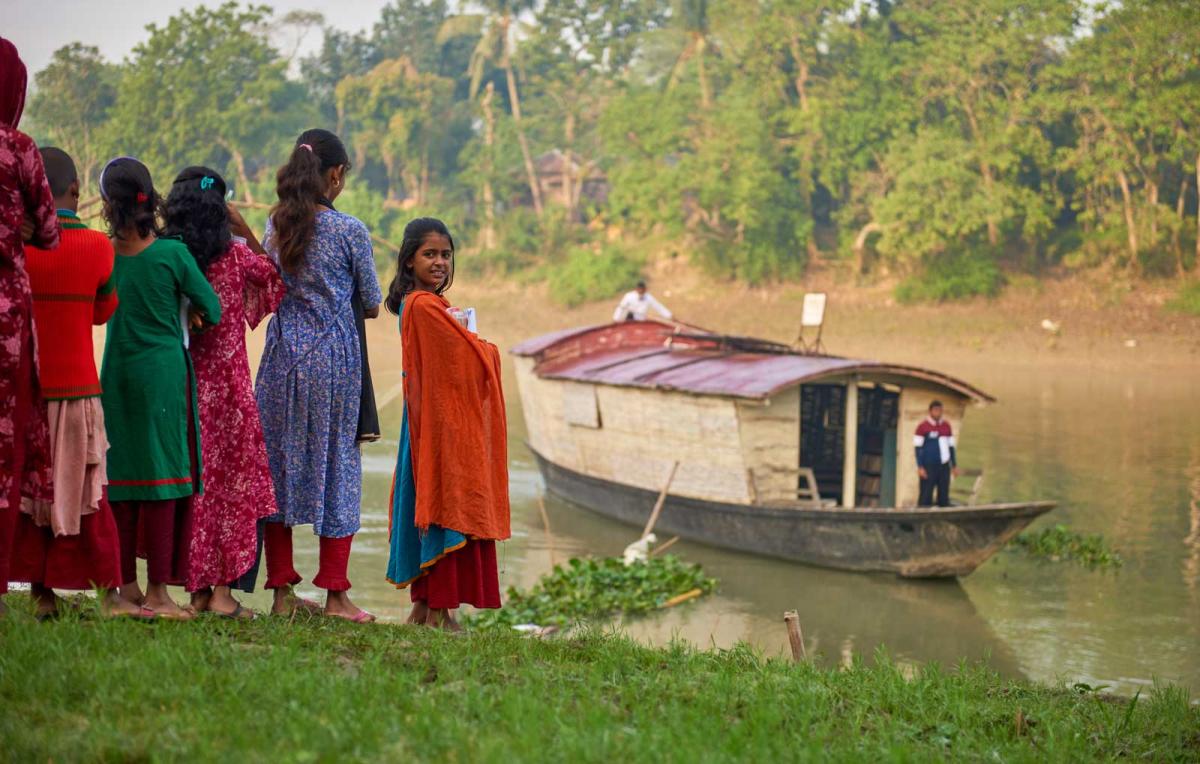
Floating school
“We get floods here every year during the monsoon. It’s always been that way, but things have got a lot worse. We get more rain, and severe drought. The flooding comes when we don’t expect it, and it lasts for longer. I can see it happening with my own eyes, but we learn a lot about global warming and climate change at boat school as well.Many children have to quit school in Bangladesh because the schools are destroyed by the flooding. And the paths and roads to the schools are also destroyed, or end up under water, so no-one can get to school anyway.
“But it never affects us. Our school is on a boat that always floats on the water, no matter how high the river rises. We can carry on going to school during the monsoon, because we get picked up from home in the village by the boat in the morning, and then we’re dropped back home at the end of the school day. It doesn’t matter if roads and paths get flooded. It’s also much safer for girls to be picked up and dropped off this way. We can get into difficulties if we have to walk long distances to school, because there are some boys and men who aren’t nice. Now my parents don’t have to worry that something might happen to me, and they can let me go to school.”

Wants to be a doctor
“Going to school is important. I want to be a doctor, so there’s lots to learn. It just wouldn’t be possible if I didn’t go to school. I want to open a brand new hospital here in the village, where everyone can get help. My hospital won’t be expensive, it will be completely free. My teacher at boat school saved me, which means it’s possible for my dream to come true. I love her for that!”
Floating school arrives
It’s almost 8 o’clock in the morning, and Rakhiya is waiting for the school boat along with some of her classmates. The boat does two more stops to pick up the rest of the class before teaching starts.“We don’t have any uniforms at my school, and I think that’s good because some families can’t afford that,” says Rakhiya.
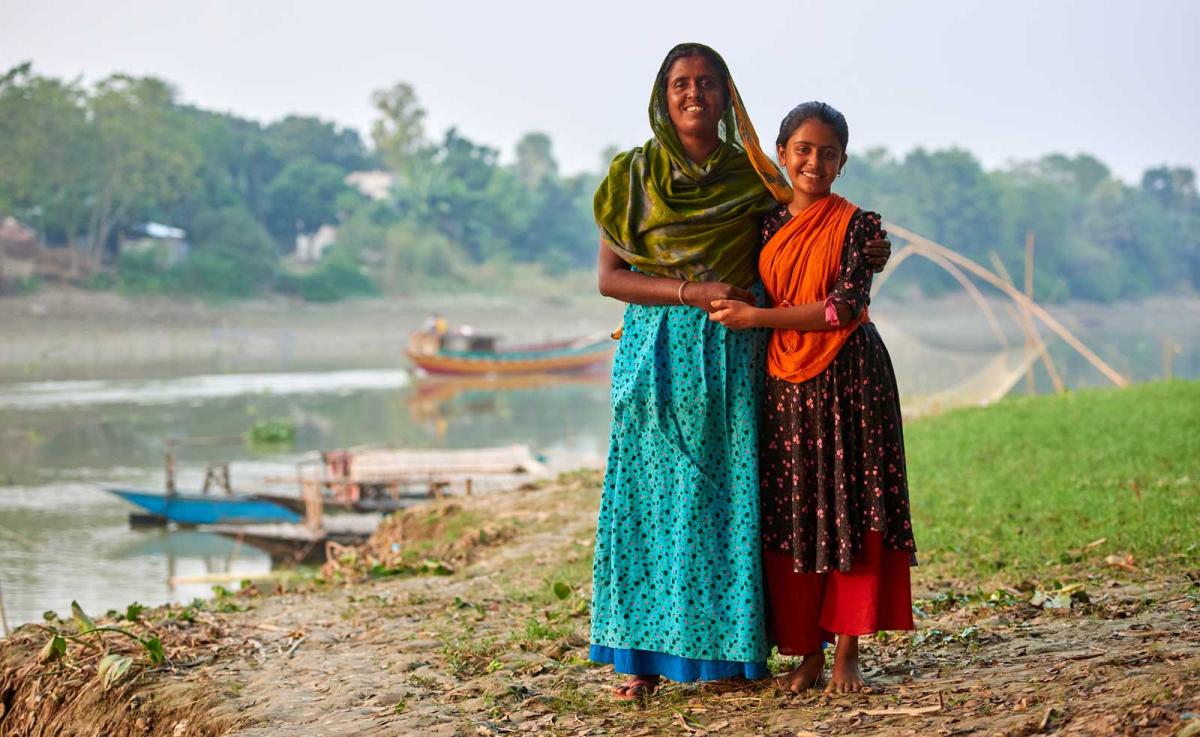
Married off at 13
“I’m so pleased we reconsidered and didn’t marry Rakhiya off. As for me, I was 13 when I was forced to marry. I managed to finish fifth grade, but when I was married off I never had the chance to go to school again. I wish for a better and simpler life for my daughter than I had,” says Rakhiya’s mum, Saleha.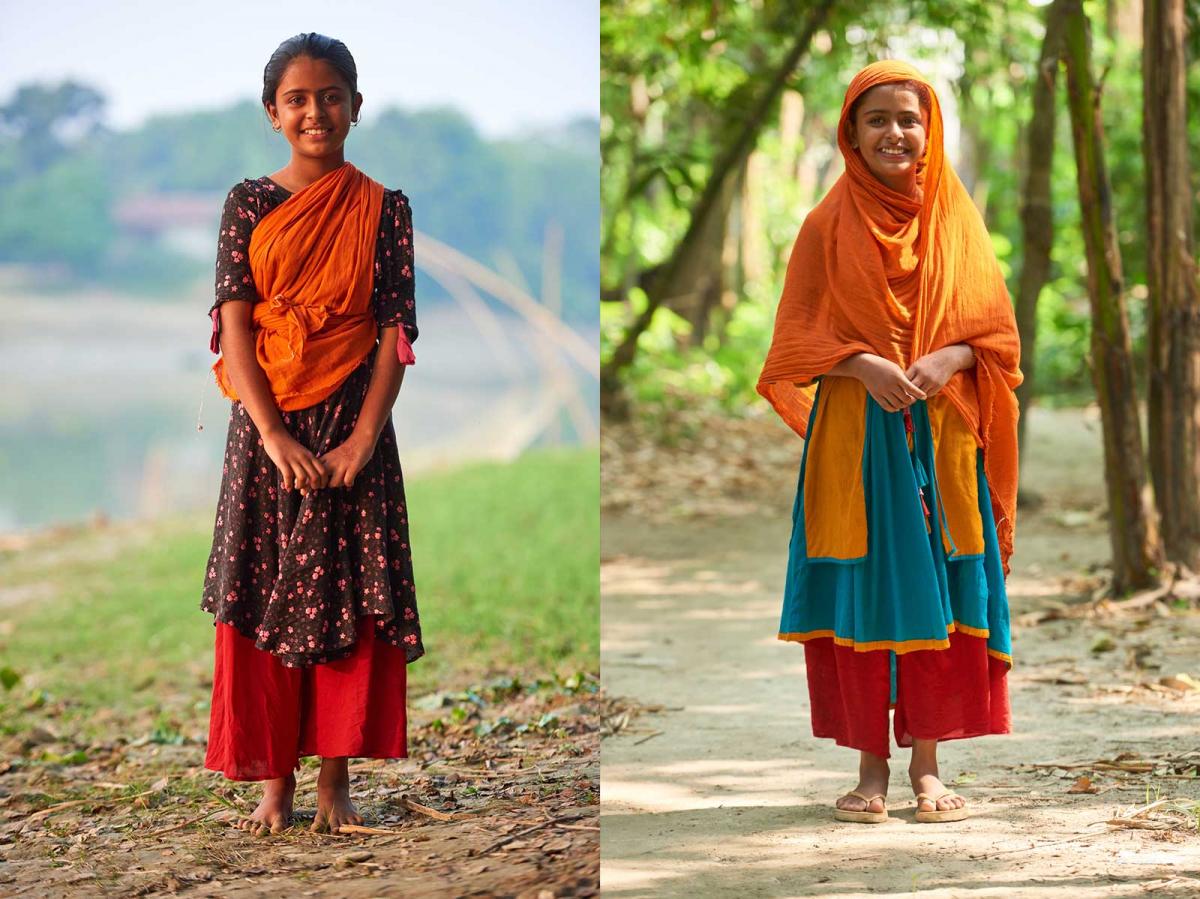
Rakhiya, 11
- Lives: By the Gumani River.
- Loves: Honesty.
- Hates: Lies.
- Best thing that’s happened to me: My teacher saving me from being married off.
- Worst thing that’s happened to me: My parents planning to marry me off.
- Wants to be: Doctor.
- Looks up to: Rezwan. I want to be like him!
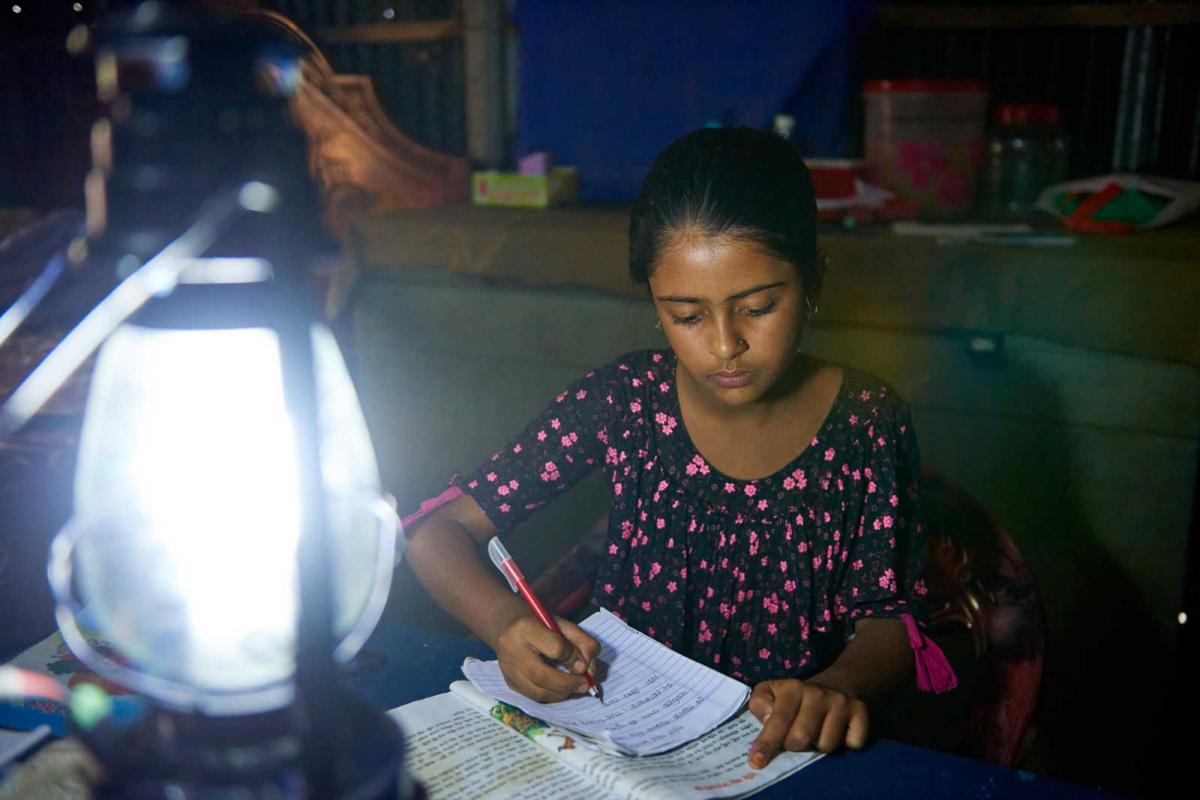
Solar power for homework
“All the students at boat school get a solar energy lamp so we have good light to do our homework by. We’ve also been given a solar panel for our roof so we can charge the lamp. I stop studying after the last call to prayer of the evening, at around 7.30 pm. The call to prayer from the mosque is like my clock,” says Rakhiya.
Banana tree raft
“When the waters rise in the river and flooding is on its way, mum and dad build a platform out of bamboo high above the water and we move there. We cook and sleep there. The water underneath the platform is often full of snakes. We also make r afts out of banana trees to get around. You have to know how to swim and treat snake bites here, otherwise you won’t survive,” says Rakhiya.Vital snake knowledge
“At boat school we learn what to do if someone gets bitten by a cobra or other snakes. First you tie a rag or band hard above the bite so the poison doesn’t spread to the rest of the body. Then you have to get to the clinic or hospital as quickly as possible. Snake bites are more common during flooding. Snakes get into the houses then to seek shelter from the water. My uncle was bitten by a dangerous snake, but luckily he survived,” explains Rakhiya.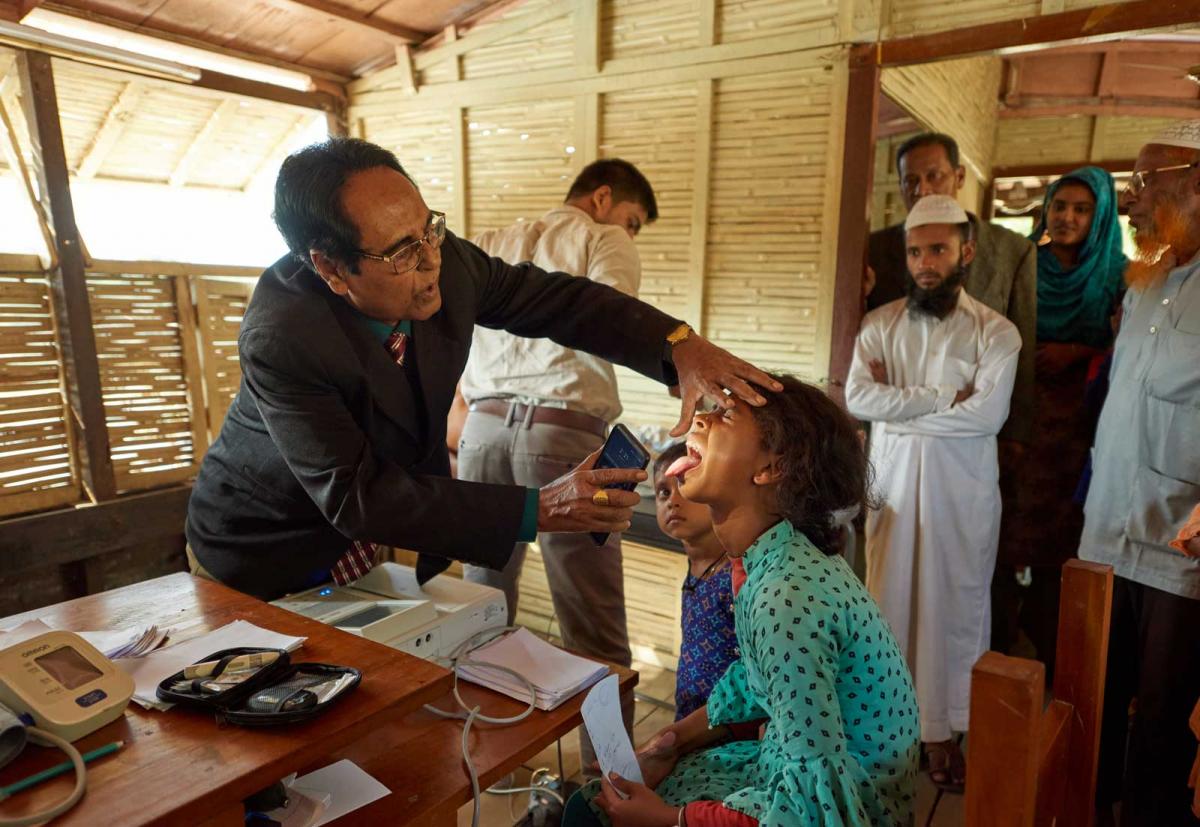
The floating clinic
“Although my dream is to start my own hospital when I grow up, I’d also like to work as a doctor at the floating clinic,” says Rakhiya.Here, boat school student Sumaya, 11, and her 4-year-old sister Choya are having their tonsils examined by Doctor Khalilur on one of Rezwan’s floating clinics. There are six floating clinics that visit patients in the villages along the rivers where the boat schools are, and this clinic passes Sumaya’s village every other week.

Computers for the future
“We have computer studies at school every day. We learn to write and draw on the computer. Everyone needs to have these skills for future study or work,” says Rakhiya.The computer runs on electricity generated by solar panels fitted to the roof of the school boat. The classroom’s lights and fans are also powered this way.
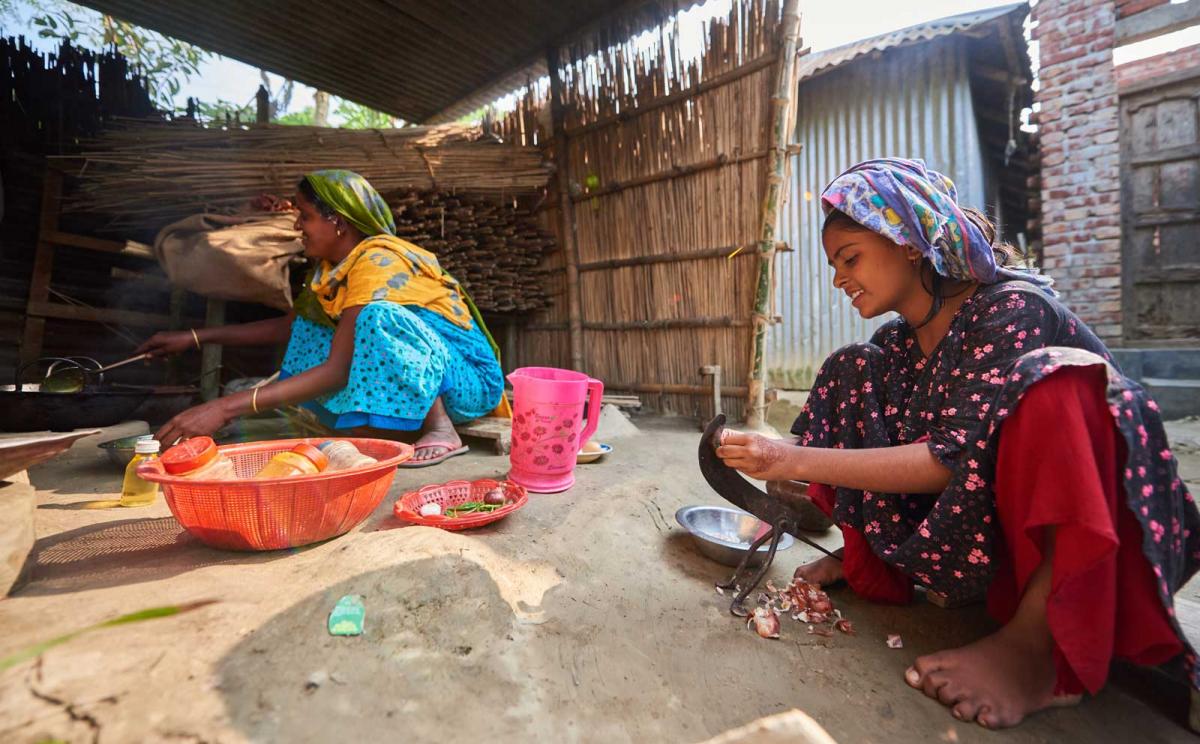
Helping out
“I help mum with cooking and cleaning. I can cook rice, fried potatoes and tasty omelettes! We don’t own any land, but when mum works in other people’s fields and isn’t at home, it’s me who does the cooking. My big brother Bijoy goes to high school, but he helps with the fishing too. I love fish! But sometimes he doesn’t catch anything. Then we just have rice and vegetables,” says Rakhiya.Rakhiya’s climate list
“We learn a lot about climate change at boat school,” says Rakhiya, showing her climate list. “It’s really bad! We need to start looking after our planet if we’re going to survive,” says Rakhiya.
- Rising temperatures.
- Droughts
- Glaciers and ice melt.
- Mer regn, på konstiga tider och som håller på längre.
- More rain, at unusual times and lasting longer.
- More flooding, at unusual times and lasting longer.
- Pollution from cars, planes and factories.
- Deforestation.
- Because we don’t recycle rubbish properly.
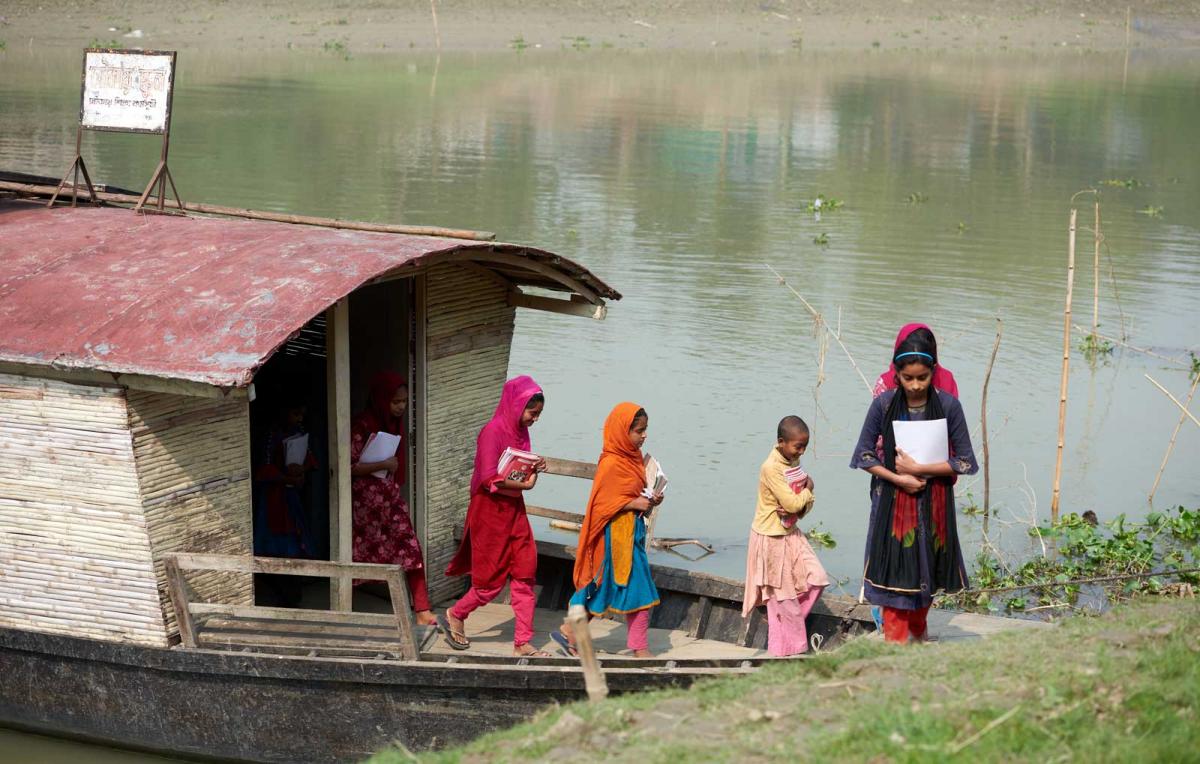
That’s it for today!!
“We have school for three hours a day, and I really like being here. At school I meet all my friends and I love it! My favourite subject is Bangla.”TEXT: Andreas Lönn
Photo: Johan Bjerke
Related stories
Långgatan 13, 647 30, Mariefred, Sweden
Phone: +46-159-129 00 • info@worldschildrensprize.org
© 2020 World’s Children’s Prize Foundation. All rights reserved. WORLD'S CHILDREN'S PRIZE®, the Foundation's logo, WORLD'S CHILDREN'S PRIZE FOR THE RIGHTS OF THE CHILD®, WORLD'S CHILDREN'S PARLIAMENT®, WORLD'S CHILDREN'S OMBUDSMAN®, WORLD'S CHILDREN'S PRESS CONFERENCE® and YOU ME EQUAL RIGHTS are service marks of the Foundation.



